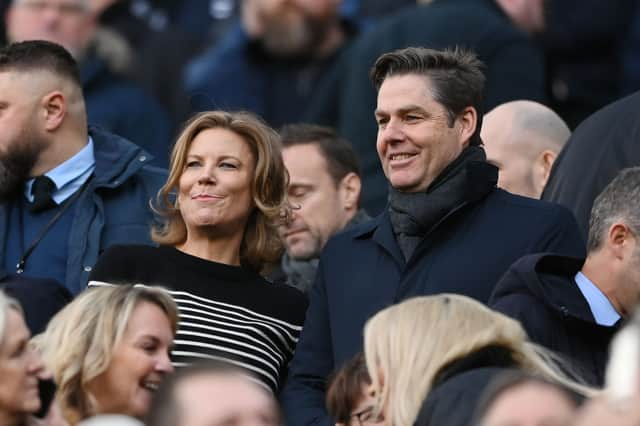Premier League CEO confirms major FFP meeting impacting Newcastle United, Liverpool & Man United


Premier League CEO Richard Masters has confirmed a meeting will take place in February where changes to the Profitability and Sustainability Rules (PSR) system are set to be discussed.
Under current PSR, English top-flight clubs are permitted to lose a maximum of £105million over a rolling three-year reporting cycle. In the last 24 hours, Everton and Nottingham Forest have been charged with allegedly breaching these regulations and referred to an independent commission. If found guilty, a fine or points deduction is likely to be issued.
Advertisement
Hide AdAdvertisement
Hide AdBut according to Masters, PSR could soon change and align with UEFA regulations. UEFA's current Financial Fair Play rules limit clubs' spending on wages, transfers and agents' fees to 70% of their revenue. Meanwhile, clubs competing in Champions League or Europa League are permitted losses to lose £49.96m over a three-year period.


Masters was speaking at a Culture, Media and Sport Committee on Tuesday where he confirmed Premier League shareholders will discuss potential PSR changes and how money can be distributed more fairly between the Premier League and the EFL across a two-day meeting in February.
He said: "The current PSR system we have at the moment, we are contemplating making some changes to that over time. We have some proposals for consultation with our clubs about aligning more with the UEFA system.
"UEFA have spent two years changing its financial regulations away from used to be called FFP. There is something called squad cost ratio which is a different calculation - more of a wage turnover ratio.
Advertisement
Hide AdAdvertisement
Hide Ad"Over time we have historically aligned with UEFA because seven or eight of our clubs are in European competitions. We need to consider whether that is an appropriate move for us and how we do that and when."
Newcastle boss Eddie Howe is keen to strengthen his squad this month amid an injury crisis which left him without 11 senior players for Saturday's 3-2 defeat to Manchester City. However, PSR is restricting the Magpies' ability to spend.
Speaking about the January transfer window last week, Newcastle CEO Darren Eales explained: "It's a difficult window to get value when you're in the middle of the season and you are trying to bring quality in. Clubs aren't willing to, or are less willing in January, to lose those types of players. Summer is always better from a value and a planning perspective.
"Secondly, we have had a number of injuries and we have got some very good players coming back in the second half of the season. We have that aspect as well when we look at the squad and talk about strengthening, we have players coming back who will have an impact. That will be the first couple of things, but like everything, we have to approach it on the medium to long term basis rather than kneejerk reactions.
"You have seen from the accounts the level of investment in the squad. We always have to be mindful of the PSR stuff and making sure we are always going to be compliant long term."
Comment Guidelines
National World encourages reader discussion on our stories. User feedback, insights and back-and-forth exchanges add a rich layer of context to reporting. Please review our Community Guidelines before commenting.
